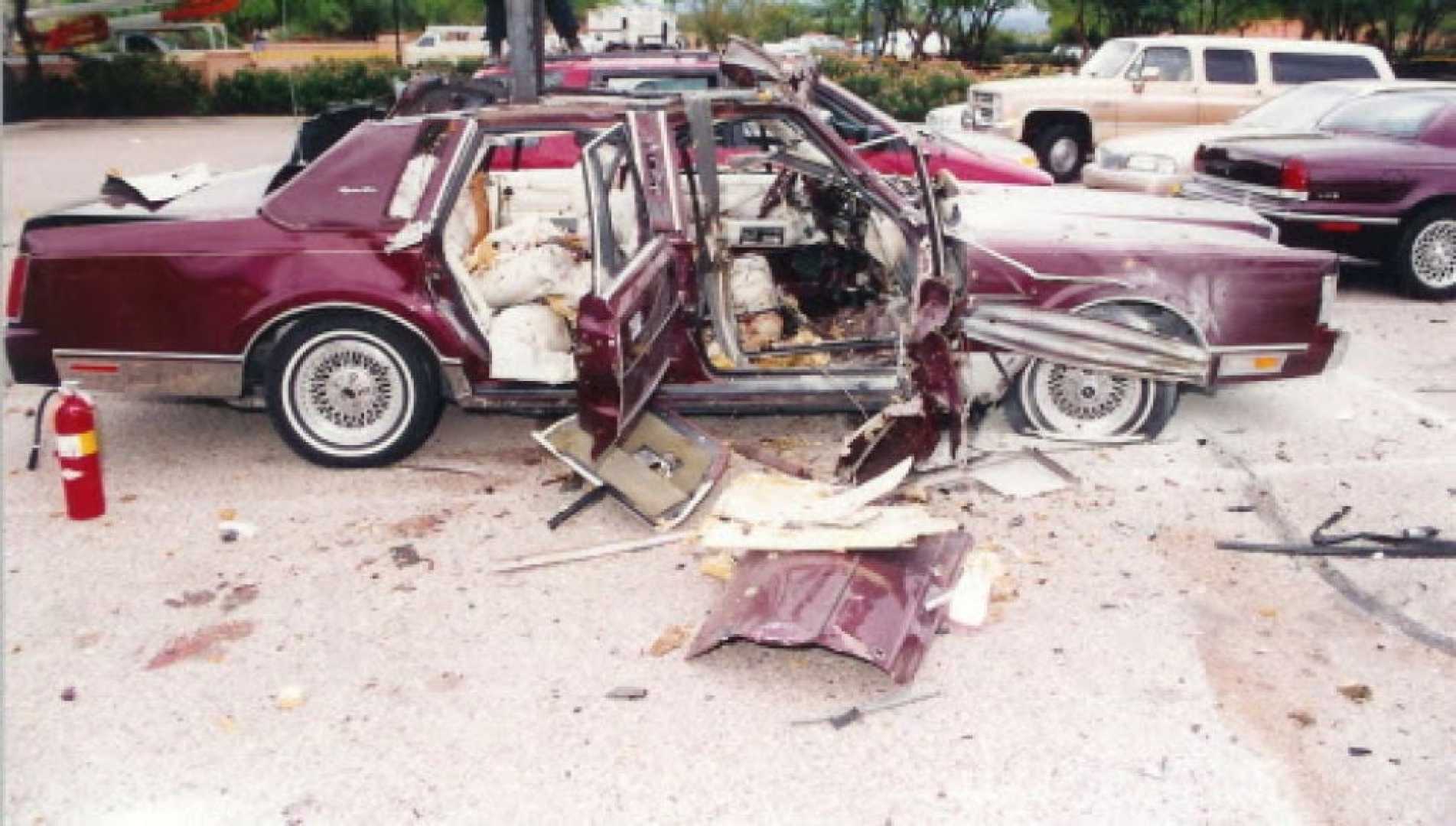News
Ex-Wife Seeks New Trial in 1996 Real Estate Developer Car Bombing Case

TUCSON, Ariz. — Nearly three decades after prominent real estate developer Gary Triano was killed in a car bombing, his ex-wife, Pam Phillips, and her business associate, Ron Young, are fighting to overturn their murder convictions based on new DNA evidence. The case, which has captivated the nation, will be featured in a new episode of ABC‘s “20/20” airing Friday, Jan. 24, at 9 p.m. ET.
On Nov. 1, 1996, Triano was killed when a bomb detonated in the parking lot of the La Paloma Country Club in Tucson. The explosion was so powerful that it sent the windshield of Triano’s Lincoln Town Car hundreds of feet into the club’s swimming pool. Phillips and Young were convicted of first-degree murder and conspiracy to commit murder in separate trials in 2010 and 2014, respectively.
Prosecutors argued that Young constructed and detonated the pipe bomb in exchange for money from Phillips, who stood to gain from Triano’s life insurance policy. However, new DNA analysis conducted in 2023 revealed genetic material on the bomb components that did not match Young’s DNA. Phillips’ attorney, Stephanie Bond, believes this evidence could exonerate her client.
“I believe two innocent people are in jail,” Bond said in an interview with “20/20.” She has filed a petition for post-conviction relief, arguing that the new DNA findings could have changed the outcome of the trial. The Pima County Attorney’s Office, however, maintains that the evidence against Phillips and Young remains overwhelming.
Triano, a successful businessman known for his real estate and casino ventures, was described by friends and family as a generous and kind-hearted man. “He was very kind and gracious and generous,” said Melissa Triano, Gary’s niece. “He was a true gentleman and a true, kind person.”
The investigation into Triano’s murder spanned years and involved multiple law enforcement agencies, including the Pima County Sheriff’s Office and the ATF. Investigators uncovered a web of financial troubles and personal conflicts, including Triano’s contentious divorce from Phillips and his subsequent bankruptcy filing in 1994, where he claimed debts of up to $27 million.
During the trials, prosecutors presented a trove of evidence, including handwritten letters, emails, and recorded phone calls between Phillips and Young. These communications, found in Young’s possession when he was arrested in 2005, detailed financial arrangements that prosecutors argued were linked to the murder plot. Defense attorneys, however, claimed the payments were part of a separate business deal.
Phillips’ defense team has also pointed to Neil McNeice, a man who allegedly had a motive to harm Triano, as a potential suspect. McNeice, who died in 2002, was described by his doctor as having a “to kill” list that included Triano’s name. Bond hopes to use genetic genealogy to match the DNA found on the bomb to one of McNeice’s associates.
Despite the new evidence, the state has dismissed the DNA findings as inconsequential. “She has brought forth nothing to rebut the evidence of her guilt, let alone evidence that likely would have changed the outcome at trial,” the Pima County Attorney’s Office stated in its response to Phillips’ petition.
As the legal battle continues, Triano’s family remains steadfast in their belief that justice was served. Melissa Triano recalled Phillips’ demeanor after her conviction: “She didn’t look at us and say she’s sorry for the loss of our uncle, of our dad, of any of that. It was all about her. So, I think that was very telling.”












